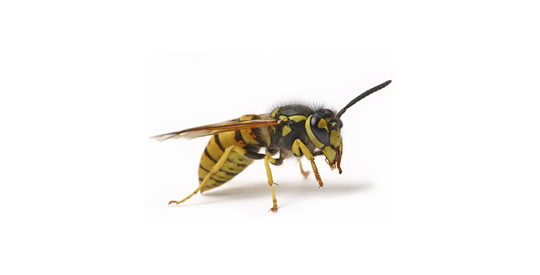Bee, Wasp, and Hornet Control Techniques:
After years of experience, Forsyth Wildlife has developed safe techniques used on a daily basis in controlling flying insects. Some of the techniques include the use of powder sprayers, wasp freeze, bee suits, bags, cutting tools, and heavy duty equipment. When dealing with one nest, multiple nests, or a sensitive area, Forsyth Wildlife has an appropriate solution that is safe for everyone and will allow the affected parties to continue on with their life as usual.
Bee Management and Removal
For the past 30 years, Forsyth Wildlife has encountered and solved thousands of problems with bees, wasps, and hornets. Forsyth Wildlife Recommends the use of a professional bee, wasp, and hornet removal company since these insects could cause serious physical harm.
Insect Stings
This is one of the most uncomfortable problems bees can carry. They can cause you stress especially if you or anyone in your family are allergic to bee or wasp stings. You can reduce the risk of being stung by calling Forsyth Wildlife to get rid of a bee nest in or near your home. We will assist you and give you ideas on how to deal with these animals when being outdoors.
Do I Have A Problem with Bees?
Whenever you see a bee nest in your property, you may have an infestation. You may also see bees entering a hole in the ground or in a wall or roof. This is time to call our Forsyth Wildlife professionals in their removal. We will help you identify the best solution: Depending on the species.
We will tell you if it is necessary to destroy the nest or not.
Some Species we Deal With:
- European Hornets
- Yellow Jackets
- Baldface Hornets
- Honey Bees
- Carpenter Bees
- Cicada Killers
- Red Wasps
- Bumble Bees
- Yellow Jacket Wasps
- Solitary wasps
Why Forsyth Wildlife
We have all the required experience and personal protective equipment needed to complete any bee job in a timely and professional manner. Whether the bee, wasp, or hornet nests are under ground, or 100 foot above it, our professionals have dealt with them in the past and are confident in even the most dangerous situations.
Best Treatment for Bees and Wasps
As for other species, treating the bee nest can be the only solution. You Forsyth Expert will assess your unique situation and tell you what kind of bees you have. We know that bees can be less aggressive than wasps. They will sting if they find themselves in a threatening situation.
Preparation
- We do not block the nest until after the treatment, this can be dangerous.
- Keep pets away from the area and close windows nearby.
- Bee activity around the entrance of the nest will increase for the first 24 hours, so people and pets should be kept away from the area until activity ceases.
We Use the Best Products
- Biodegradable
- Almost odorless
- They do not corrode or stain.
- They are not highly toxic for mammals but very effective for crawling and flying pests.
What to Do After a Forsyth Treatment?
- After treatment, bees and hornets can remain in a hyperactive state for a few hours.
- Their activity will end within 7 warm days.
- If you have cold or wet days, this may take longer.




